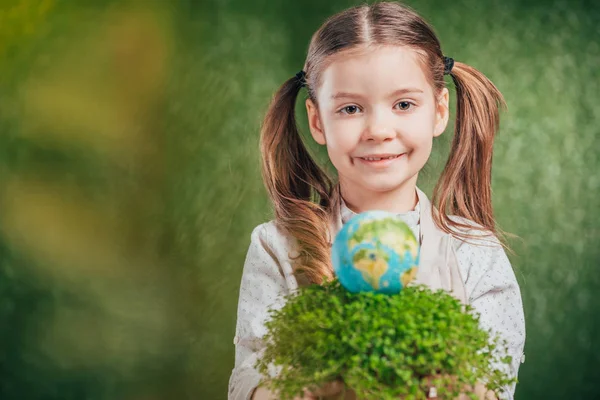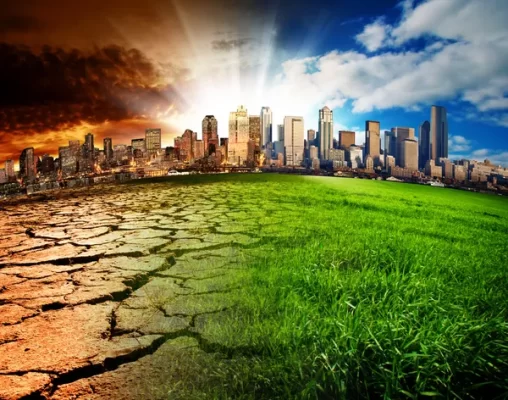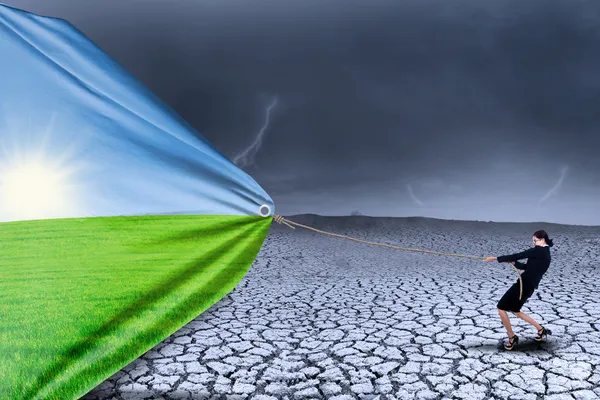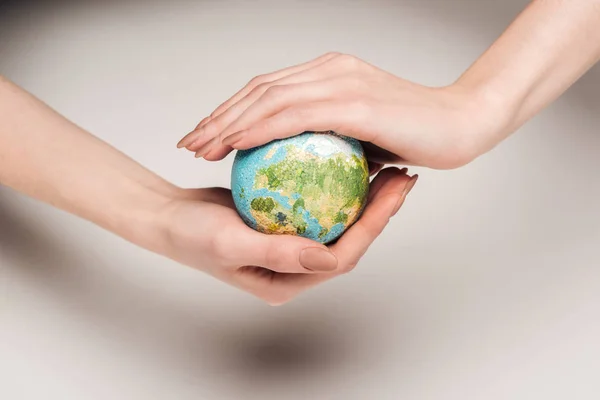World Environment Day propagates: Go green, breathe clean. Stop polluting the environment. Save our planet. Think before you trash it.
World Environment Day (WED) is celebrated annually on 5 June and encourages awareness and action for the protection of the environment. It is supported by many non-governmental organizations, businesses, and government entities, and represents the primary United Nations outreach day supporting the environment.
First held in 1973, it has been a platform for raising awareness on environmental issues such as marine pollution, overpopulation, global warming, sustainable development, and wildlife crime. World Environment Day is a global platform for public outreach, with participation from over 143 countries annually. Each year, the program has provided a theme and forum for businesses, non-government organizations, communities, governments, and celebrities to advocate environmental causes.

World Environment Day was established in 1972 by the United Nations at the Stockholm Conference on the Human Environment (5–16 June 1972), that had resulted from discussions on the integration of human interactions and the environment. One year later, in 1973 the first WED was held with the theme “Only One Earth”.
Today we need to understand the importance of conserving biodiversity and outline actions to protect ecosystems, combat climate change and raise awareness for a sustainable future.
Remember dinosaurs, that lopsided towering being that became extinct years ago? Do you as humans want to meet the same fate? Certainly not!
We have not inherited this earth from our forefathers; we have borrowed it from our children. – Lester Brown
This is a revolutionary statement by Mr. Lester Brown. It focuses attention on the position of man in this universe. People take it for granted that the earth is theirs as they have inherited it from their forefathers. They forget the fact that the real owners of the land are our children. We are only custodians or trustees and we must continue the development that meets the needs of the present, without compromising the ability of future generations to meet their needs.
In such a scenario, we must leave a healthy, green, and clean inheritance for our children. But are we conscious enough? Are we not cutting trees in the name of development? Are we planting enough trees? Are we restricting carbon emissions? Are we giving up plastic usage? Are we disposing of garbage properly? Are we ensuring biodiversity to a healthy planet? We need to seek answers to these questions and work towards ensuring the health of planet Earth as there is no planet B.
Recognized by the United Nations, this day serves as a reminder of our collective responsibility to protect and sustainably manage the Earth’s rich and diverse ecosystems. Unfortunately, biodiversity is under severe threat due to various human activities like habitat destruction, deforestation, pollution, climate change, overexploitation of natural resources, and the introduction of invasive species have all contributed to the decline of species and ecosystems worldwide. The loss of biodiversity not only diminishes the resilience of ecosystems but also jeopardizes food security, water availability, and human well-being. Thus, creating a threat to human survival going forward.

To arrest these, we must turn to natural things for our day-to-day usage. We need to reduce dependence on plastic and other such material which takes eons to degenerate. This year’s environment day theme is #BanPlastic. Plastic is a non-biodegradable material and as such it causes land pollution. At the same time burning such materials as garbage causes serious air pollution. Improper disposal of plastics causes several problems. The benefits of reducing plastic consumption include: Preventing pollution by lessening the amount of new raw materials used as these save energy, and reduce greenhouse gas emissions, which contribute towards climate change.
So, why plastic should be banned: Plastic bags do not decompose. The best they do is get broken down into small pieces that are often airborne and land in oceans. Once they land in oceans and forests, plastic bags are eaten by animals, causing various health issues, which often result in death.
As a first measure there is a need to encourage sustainable agriculture and forestry by way of introducing sustainable farming practices that minimize the use of pesticides, conserve soil fertility, and protect natural habitats can help maintain biodiversity in agricultural landscapes. Similarly, adopting responsible forest management practices can mitigate deforestation and habitat destruction.
Another important measure is to arrest climate change which has created imbalances all over the planet. Combatting climate change is crucial for biodiversity conservation. So, how can we do that? We need to make efforts to reduce greenhouse gas emissions, promote renewable energy sources, and adapt to changing climatic conditions can help safeguard vulnerable species and ecosystems.

World Environment Day is a poignant reminder that why it is crucial to maintain bio-diversity for a greener and healthier planet otherwise survival of human beings will be challenged. As responsible human beings, we need to look after our planet well and should not indulge in such activities which reduce the green cover. In the race of development, we have forgotten that we are putting the earth’s natural resources under severe threat. We need to compromise our comforts which leads to climate change, carbon emissions, cutting of trees, and reduction of biodegradable material.
Mahatma Gandhi’s way of living is the best example of sustainable development for the world. In Mahatma Gandhi’s words, “Earth provides enough to satisfy every man’s need but not any man’s greed”.

So, pledge on this World Environment Day you will work towards the happiness of the planet and become HappyHo.


